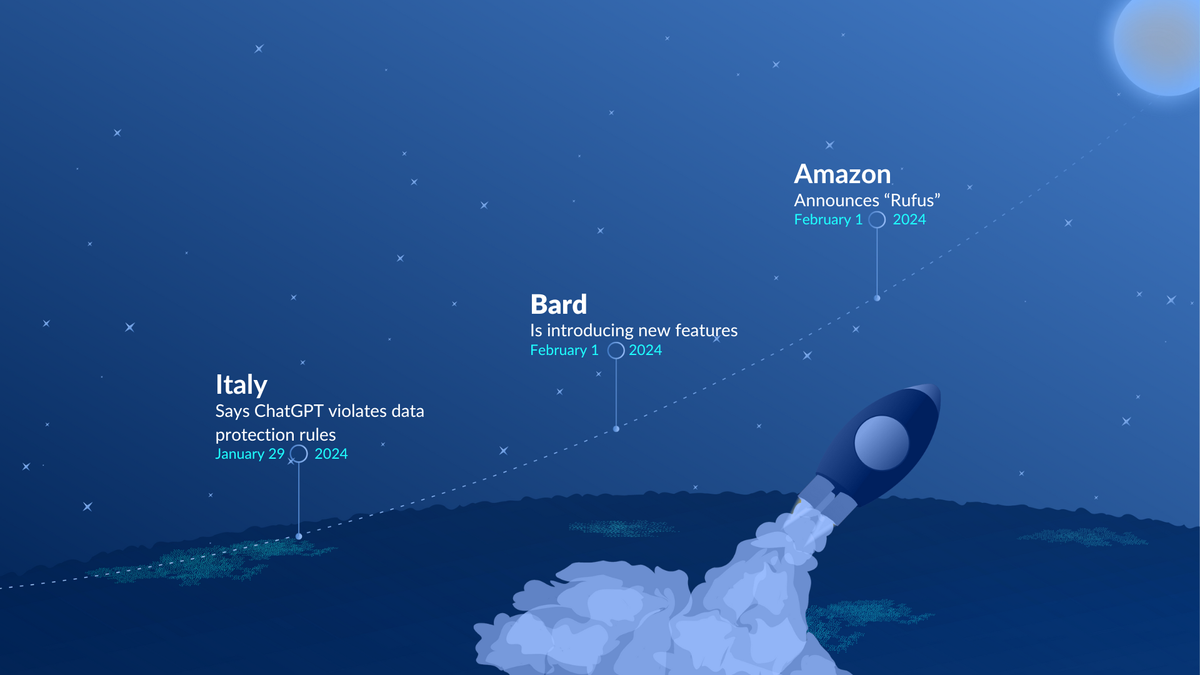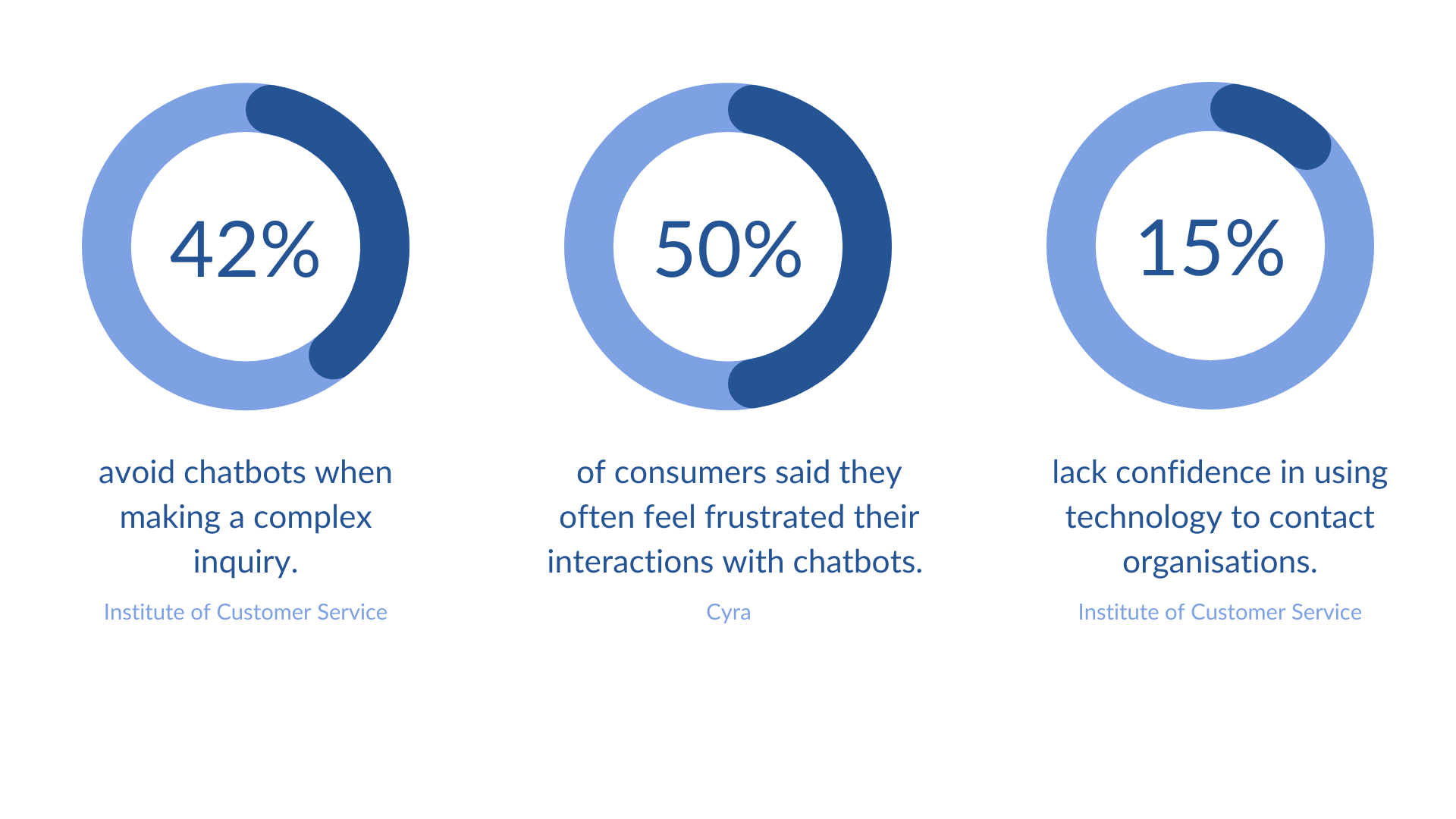Powered By Data, February 5, 2024
Keep up-to-date on conversational AI & chatbots with fascinating data points and weekly news.

Data Points

Last Week in Conversational AI
- Amazon has introduced Rufus, a generative AI-powered expert shopping assistant. Rufus is trained on Amazon's extensive product catalog, customer reviews, community Q&As, and information from the web to answer customer questions, provide product comparisons, and make recommendations based on conversational context. It aims to enhance the ease with which customers find and discover products. Rufus will be available in beta, initially to a small subset of customers in the U.S. through Amazon's mobile app, with a gradual rollout to more customers in the coming weeks. Customers can ask a range of questions about products and receive tailored responses.
Read More - Bard, OpenAI's AI-powered platform, is introducing new features. Gemini Pro in Bard, which offers advanced understanding, reasoning, summarizing, and coding abilities, will now be available in over 40 languages and more than 230 countries and territories. The double-check feature allows users to corroborate Bard's responses and expands to over 40 languages. Additionally, Bard now supports image generation in English in most countries, allowing users to describe an image, and Bard will generate visuals to bring the idea to life. Image generation includes safeguards to ensure responsible use and privacy protections. These updates aim to make Bard a more globally accessible and capable AI collaborator.
Read More - The Italian Data Protection Authority (DPA) says OpenAI's chatbot, ChatGPT, violates data protection rules. The inquiry revealed privacy violations related to the collection of personal data and age protections. OpenAI stated that its practices align with privacy laws, emphasizing its commitment to reducing personal data and rejecting requests for private or sensitive information. Italy was the first Western country to block ChatGPT in March 2023, citing privacy concerns. Still, the chatbot was reinstated approximately four weeks after addressing the issues raised by the DPA. The DPA claims its recent fact-finding activity found evidence of GDPR breaches related to mass data collection and concerns about inappropriate content exposure for younger users. The GDPR allows fines of up to 4% of a company's global turnover for violations. Italy's DPA collaborates with the European Data Protection Board, which established a task force to monitor ChatGPT in April 2023.
Read More
